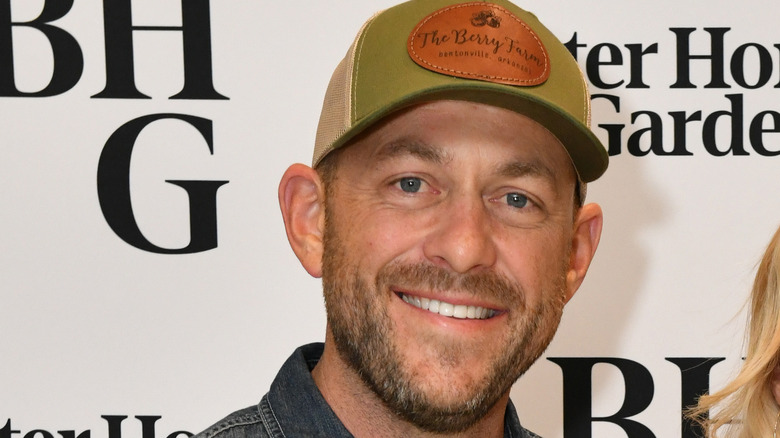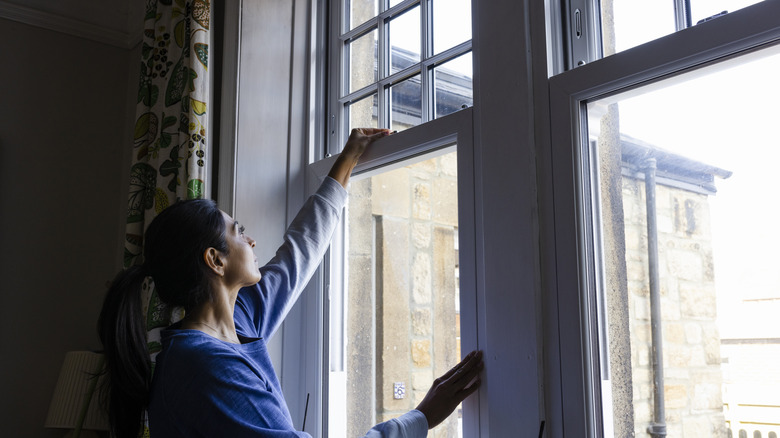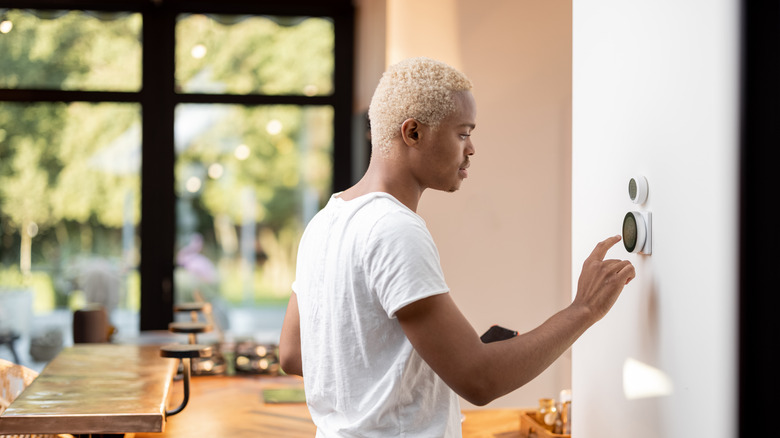Why HGTV's Dave Marrs Warns Against Saving A Home's Original Windows During A Reno
Home renovations can get expensive, and fast. That's why most folks try to salvage as much as they can when trying to update their spaces. Changing the floor stain is much cheaper than putting in new flooring, repainting kitchen cabinets is much more affordable than ordering new custom ones, and reglazing an old tub is a little more budget-friendly than buying a new one. While there are plenty of ways to save during a home reno, there is one thing that HGTV's Dave Marrs warns against keeping, and that's the home's old windows. Specifically, single-pane ones. That's because they aren't energy-efficient and pose a risk if broken.
This can be painful for some homeowners to hear because replacing old windows can cost a pretty penny. On average, each replacement window can cost $700, and if you have a whole house to outfit, that number will easily climb into the tens of thousands. But Marrs doesn't think this is where you should cut costs. Here's a deeper dive into why he thinks it's best to splurge on new window replacements.
It poses a safety risk
First thing is first: You don't have to take on this big expense if you have double-pane glass. Instead, Marrs' suggestion only pertains to the old-fashioned, single-pane windows. These specifically are the ones that can give you trouble down the road — both financially and bodily. When remodeling a lake house in Season 5, Episode 8 of "Fixer to Fabulous," he points out that the giant glass windows would need some updating. "If we want to make this all about safety, having that big a pane of glass that's just a single pane of glass? I would want insulated window units," he said. The house was built in 1967, and the windows haven't been updated since.
Marrs first brought up safety because these older windows are much easier to break than modern ones since they only have one sheet of glass. And if they do break, the results can be hazardous. Many single-pane windows aren't tempered, which means they will break into large shards rather than small pieces. As you can imagine, this can create a lot of harm. "Before we can frame up those walls and make it safe again in here, Dave and I have to get all of that glass removed," he stressed on demo day. When his renovation crew began removing the panes, they did so extremely carefully and while wearing protective gear like safety goggles. "Let me get my glasses on in case that thing does shatter," he said before they took out the first one. To ensure you don't put yourself or your family at risk, it's best to swap out single-pane windows for double-pane ones.
It's also energy inefficient
Secondly, single-pane glass has poor insulation. That's why Dave stressed the upgrade during the end reveal of the episode, telling the homeowners, "We replaced all of the glass. It's all insulated, double-pane glass now. It's also energy-efficient." If you keep single-pane glass, heat will easily seep through it during the summer, and the cold will come in during the winter, raising your energy bills and making it difficult to sit near the windows. That's because they only have one sheet of glass separating you from the elements. In contrast, double or triple-pane windows have two to three sheets of glass, and they often have argon gas in between each pane. This further helps to insulate the unit since it's a dense gas. This makes it harder for hot or cold air to fight its way past it and into your home.
For much the same reasons, single-pane glass is also terrible at keeping the sound out, so you will easily hear any noise from outside. In fact, it has a low Sound Transmission Class (STC) rating, which measures how well glass blocks noise. Single-pane glass has a rating of 25, which is the very bottom of the scale and indicates zero soundproofing. For context, 65 is complete soundproofing, where shouting won't be heard.


